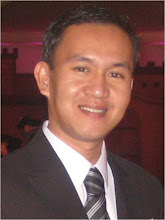A January 5, 2011 press release prepared by the Office of the Presidential Adviser on the Peace Process
Legazpi City – The permanent closure of all armed conflicts in the country is seen as one of the important drivers of development, as discussed today in the regional consultations on the Medium Term Philippine Development Plan (MTPDP) 2011-2016 held at the National Economic Development Authority (NEDA) Regional Field Office here.
Strategies on winning the peace, which will be implemented by the Office of the Presidential Adviser on the Peace Process (OPAPP), will be anchored on two tracks: 1) the politically negotiated settlement of all armed conflicts; and 2) the transformation of conflict-affected areas to peaceful and empowered communities through the Payapa at Masaganang Pamayanan (PAMANA) Program.
Further, this track includes finishing the implementation of the signed peace agreements with the Moro National Liberation Front (MNLF) and the Cordillera People’s Liberation Army (CPLA). This also intends to put closure to peace tracks with breakaway groups, such as the Rebolusyonaryong Partido ng Manggagawa – Pilipinas-Revolutionary Proletarian Army-Alex Boncayao Brigade (RPM-P-RPA-ABB).
The second track, which will be driven by the PAMANA program, seeks to respond and strengthen peace building, reconstruction and development in conflict-affected areas.
PAMANA is the government’s flagship program with the approach of bringing back government in war-torn communities by ensuring that they benefit from improved basic services delivery and are served by responsive and accountable governments.
Over 150 representatives of the national government, regional offices, local government units (LGUs), civil society, peoples organizations (POs) and private sector joined the MTPDP consultations in Region 5, which seeks to outline the economic and development priorities of the current administration.
Led by NEDA, the consultations aim to ensure that regional issues and concerns are considered in the policies, programs and strategies indicated in the MTPDP.
Led by NEDA, the consultations aim to ensure that regional issues and concerns are considered in the policies, programs and strategies indicated in the MTPDP.
Similar consultations are currently being held today in Regions 4B, 9, 11 and 12; January 6 in Regions 2, 4A, 6, 7, 8, 10 and 13 and January 7 in the National Capital Region (NCR).

No comments:
Post a Comment